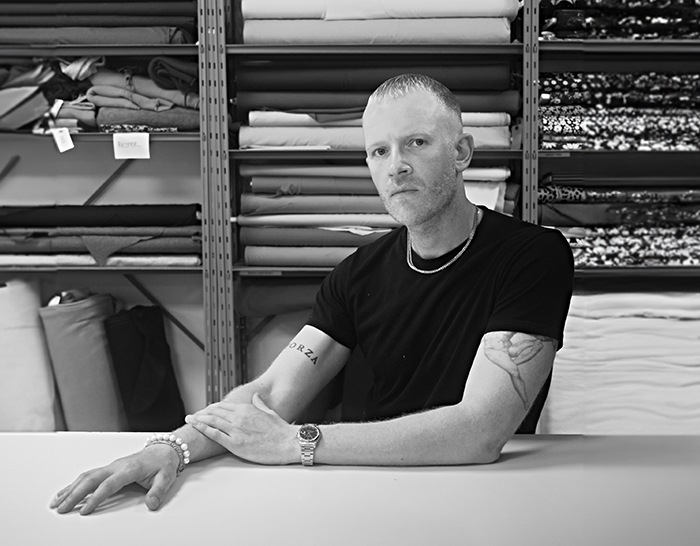Forza Collective aims to be a pioneering voice in redefining Danish minimalism, offering a fresh perspective on luxury garments with a simplistic ethos.



Could you tell us about what being the finalist of the Prize means to you personally and professionally?
It means a lot to me personally, as it reflects the level Forza Collective already is at after my debut collection, the vision of the brand and what we stand for: Craftmanship, minimalism and Sustainability.
The Danish fashion industry is known for its value for money approach. How do you balance affordability with maintaining high-quality design and craftsmanship?
The collection is a fine balance between more complicated pieces with a couture approach, down to simple pieces like an A-line dress. For me, a skilled designer will incorporate the DNA from the high-end pieces and scale the information down to the commercial part of the collection, so it is affordable while holding its value in terms of fabrication and cut. That, in my opinion is how you maintain value for money while paying respect to the soul of the brand.
Sustainability and responsible practices are increasingly important in the fashion industry. How do you incorporate sustainability into your work, and what message do you hope to send to others in the industry in this regard?
I have committed myself to only using eco-friendly and sustainable developers and companies as business partners. That includes, production of textiles, garments and working conditions. From day one, we have partnered up with Lisa Bergstrand Consultancy, an agency that helps fashion companies keep a green footprint which also includes contracts signed by all our business partners that ensures our existence a minimal environmental impact.
Denmark is known for its strong sense of community. How have you experienced or contributed to the development of a close-knit fashion community within Denmark?
The welcome and support I have experienced from industry leaders in Copenhagen has been overwhelming. After spending much of my time and career in Paris and New York, it is a new unique and helps brands evolve and give back to the industry.



Danish fashion design is often celebrated for its uniqueness. Can you share your perspective on what sets Danish designers apart, particularly in terms of aesthetics and design philosophy?
Danish design use to be about quality, minimalism, and bold statements in terms of materials, fabrication, and construction. I feel we have moved away from that, and the lines has been blurred – which has helped open up for new conversations and brands which ultimately helps move an industry forward. I hope to bring a new and take on what Danish minimalism is to the scene with Forza Collective.
How do you see the future of Danish fashion design evolving, both in terms of aesthetics and ethical considerations?How – as a finalist of the Prize – can you contribute to it?
Sustainability, inclusivity and working conditions are an evolving and a constant ongoing conversation for the industry. My hope is the Danish industry will do its best to be at forefront of those issues.
Aesthetics and design periods of hype are always on rotation and will eventually circle back to the present moment in an updated version. We have been through the movements of the simplicity and 90’s grunge. I would like to see a new version of what Danish minimalism could be.
I want Forza Collective to be a voice and presentation of sustainability, inclusivity – while offering a new take on luxury garment with a simplistic point of view.
